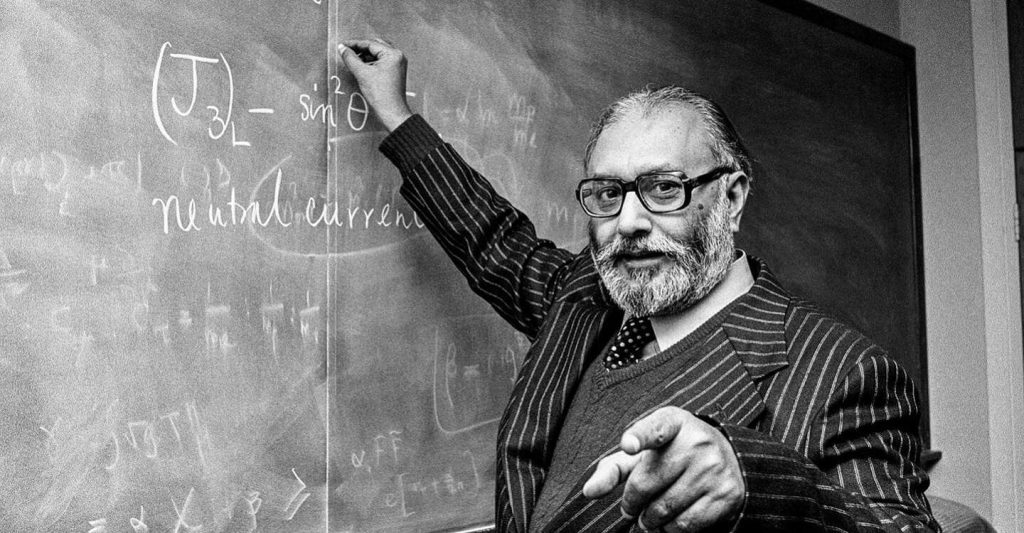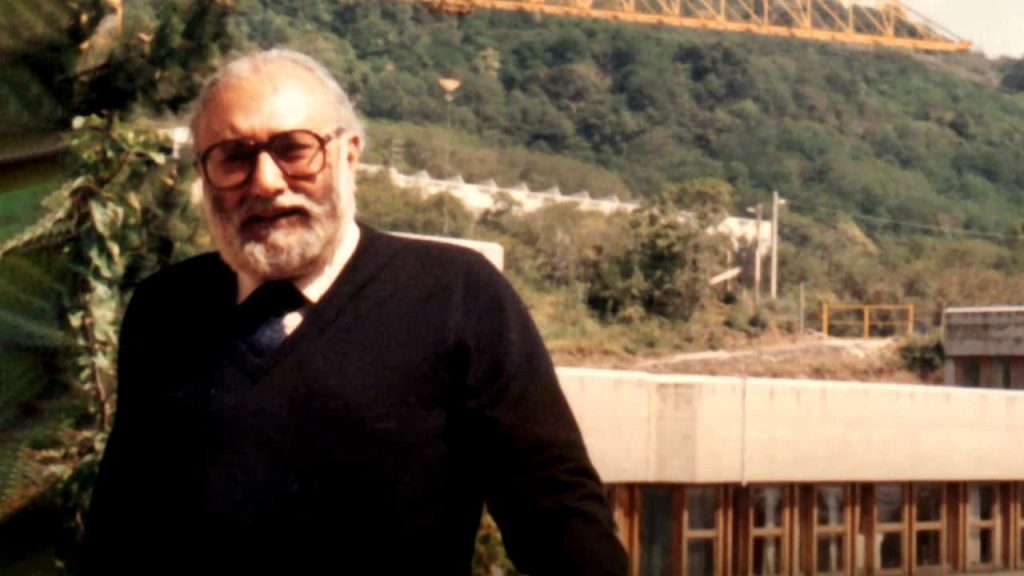As Dr Abdus Salam walks on to the stage at the Nobel ceremony of 1979, there is almost a whiff of costumery, of a flamboyant display of identity. In front and behind him in the procession are men in a uniform of “penguin” tuxedoes. And there is Dr Salam, resplendent from the top of his whipped-cream turban, the black sherwani, the white shalwar, down to his up-curled khussas. He was clearly fond of his three-piece suits too. But on that day in Stockholm: I am Muslim, I am Pakistani, his attire shouted. The world heard him, but his country did not.
Such is the premise of Salam: The First ****** Nobel Laureate, the fourteen years-in-the-making documentary about Dr Abdus Salam streaming now on Netflix. It is not a film about the science that made the man, but the politics of his identity. Should it matter that an internationally feted theoretical physicist is of the minority Ahmadi faith? It did to both Dr Salam and Pakistan.

Produced by Pakistanis Zakir Thaver and Omar Vandal and directed by an American-Indian, Anand Kamalakar, it has already won awards and been seen in 30 countries on the festival circuit as well as private screenings in Pakistan. However, the film’s release on Netflix makes it far more accessible, particularly where it matters, in Pakistan.
Stitched together with rare archival footage, newspaper clippings and interviews of colleagues, wives, children, admirers, assistants and associates, Salam is threaded through with details and footage that were unseen or not commonly known.
Particularly memorable is his moment in Stockholm, his interaction with the two men who broke his heart and condemned his community to a virtual prison – Bhutto and Zia – and his funeral attended by the thousands.
Moreover, the documentary does not paper over his flaws: his whacky ideas, his vanity, his quirks, his testiness; genius becomes more humane in its layers. The story of the young boy from a small town in a developing country who ended up rubbing shoulders with global scientific superstars should just be inspirational, but it also leaves you heartbroken.
Dr. Abdus Salam, a theoretical physicist, Nobel laureate, twice-married, Pakistani-for-life, global citizen, rags-to-researcher, died over two decades ago, but his life is still so achingly contemporary. The politics of identity are foremost in this age of right-wing populism.
I travelled to Rabwah several years ago, to the hostel where men and women of the Ahmadi faith live in a state of limbo, hiding, or waiting for their asylum papers to come through. Their stories of everyday discrimination and brute violence never leave you.

It is a well-kept town with broad tree-lined roads, a state of the art hospital and educational facilities, ringed by the Kirana hills and encircled by hate. Here is where Dr Salam chose to be buried, the Muslim on his gravestone effaced, his life and work all but forgotten in the country where he derived his identity, where he deserved recognition, and where he wanted to promote scientific research the most.







